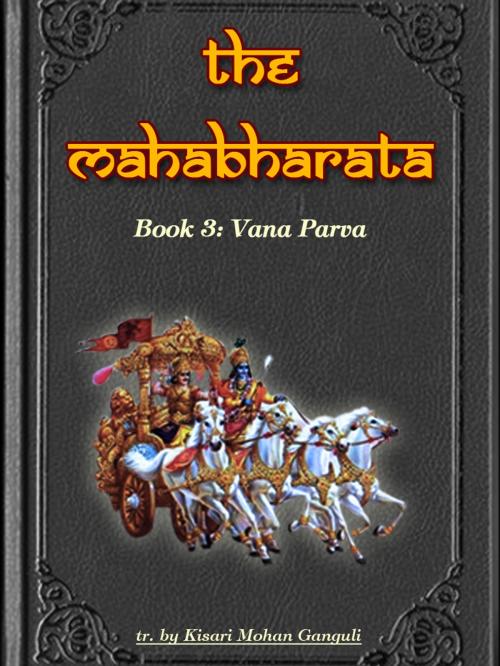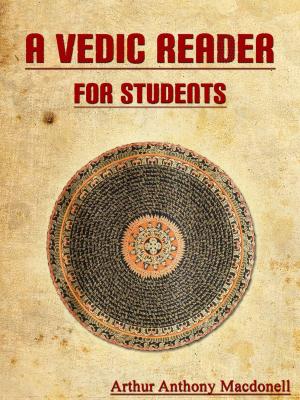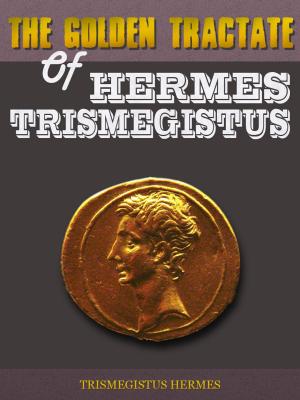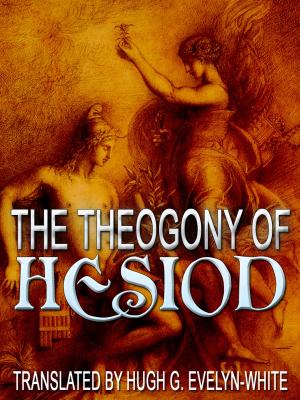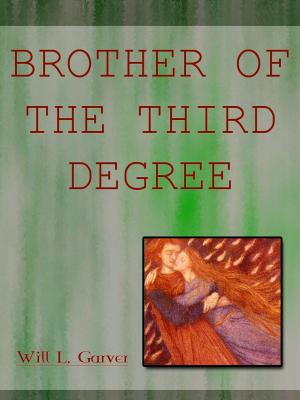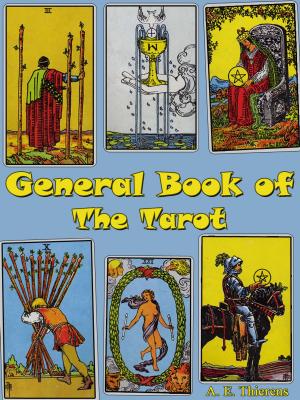The Mahabharata, Book 3: Vana Parva
Nonfiction, Religion & Spirituality, Eastern Religions, Hinduism, Inspiration & Meditation, Spirituality, History| Author: | Kisari Mohan Ganguli | ISBN: | 1230000036109 |
| Publisher: | AppsPublisher | Publication: | December 3, 2012 |
| Imprint: | Language: | English |
| Author: | Kisari Mohan Ganguli |
| ISBN: | 1230000036109 |
| Publisher: | AppsPublisher |
| Publication: | December 3, 2012 |
| Imprint: | |
| Language: | English |
The Mahabharata, Book 3: Vana Parva
Kisari Mohan Ganguli, tr.
Om! Having bowed down to Narayana, and Nara the foremost of male beings, and the goddess Saraswati also, must the word Jaya be uttered.
It is of immense importance to the culture of the Indian subcontinent, and is a major text of Hinduism. Its discussion of human goals (artha or purpose, kama or pleasure, dharma or duty/harmony, and moksha or liberation) takes place in a long-standing tradition, attempting to explain the relationship of the individual to society and the world (the nature of the 'Self') and the workings of karma.
The object of a translator should ever be to hold the mirror upto his author. That being so, his chief duty is to represent so far as practicable the manner in which his author's ideas have been expressed, retaining if possible at the sacrifice of idiom and taste all the peculiarities of his author's imagery and of language as well. In regard to translations from the Sanskrit, nothing is easier than to dish up Hindu ideas, so as to make them agreeable to English taste. But the endeavour of the present translator has been to give in the following pages as literal a rendering as possible of the great work of Vyasa. To the purely English reader there is much in the following pages that will strike as ridiculous. Those unacquainted with any language but their own are generally very exclusive in matters of taste. Having no knowledge of models other than what they meet with in their own tongue, the standard they have formed of purity and taste in composition must necessarily be a narrow one. The translator, however, would ill-discharge his duty, if for the sake of avoiding ridicule, he sacrificed fidelity to the original. He must represent his author as he is, not as he should be to please the narrow taste of those entirely unacquainted with him. Mr. Pickford, in the preface to his English translation of the Mahavira Charita, ably defends a close adherence to the original even at the sacrifice of idiom and taste against the claims of what has been called 'Free Translation,' which means dressing the author in an outlandish garb to please those to whom he is introduced.
"Janamejaya said, 'O thou foremost of regenerate ones, deceitfully defeated at dice by the sons of Dhritarashtra and their counsellors, incensed by those wicked ones that thus brought about a fierce animosity, and addressed in language that was so cruel, what did the Kuru princes, my ancestors--the sons of Pritha--(then) do? How also did the sons of Pritha, equal unto Sakra in prowess, deprived of affluence and suddenly over whelmed with misery, pass their days in the forest? Who followed the steps of those princes plunged in excess of affliction? And how did those high souled ones bear themselves and derive their sustenance, and where did they put up? And, O illustrious ascetic and foremost of Brahmanas, how did those twelve years (of exile) of those warriors who were slayers of foes, pass away in the forest? And undeserving of pain, how did that princess, the best of her sex, devoted to her husbands, eminently virtuous, and always speaking the truth, endure that painful exile in the forest? O thou of ascetic wealth tell me all this in detail, for, O Brahmana, I desire to hear thee narrate the history of those heroes possessed of abundant prowess and lustre. Truly my curiosity is great.'
"Vaisampayana said, 'Thus defeated at dice and incensed by the wicked sons of Dhritarashtra and their counsellors, the sons of Pritha set out from Hastinapura. And issuing through Vardhamana gate of the city, the Pandavas bearing their weapons and accompanied by Draupadi set out in a northernly direction. Indrasena and others, with servants numbering altogether fourteen, with their wives, followed them on swift cars. And the citizens learning of their departure became overwhelmed with sorrow, and began to censure Bhishma and Vidura and Drona and Gautama. And having met together they thus addressed one another fearlessly.
The Mahabharata, Book 3: Vana Parva
Kisari Mohan Ganguli, tr.
Om! Having bowed down to Narayana, and Nara the foremost of male beings, and the goddess Saraswati also, must the word Jaya be uttered.
It is of immense importance to the culture of the Indian subcontinent, and is a major text of Hinduism. Its discussion of human goals (artha or purpose, kama or pleasure, dharma or duty/harmony, and moksha or liberation) takes place in a long-standing tradition, attempting to explain the relationship of the individual to society and the world (the nature of the 'Self') and the workings of karma.
The object of a translator should ever be to hold the mirror upto his author. That being so, his chief duty is to represent so far as practicable the manner in which his author's ideas have been expressed, retaining if possible at the sacrifice of idiom and taste all the peculiarities of his author's imagery and of language as well. In regard to translations from the Sanskrit, nothing is easier than to dish up Hindu ideas, so as to make them agreeable to English taste. But the endeavour of the present translator has been to give in the following pages as literal a rendering as possible of the great work of Vyasa. To the purely English reader there is much in the following pages that will strike as ridiculous. Those unacquainted with any language but their own are generally very exclusive in matters of taste. Having no knowledge of models other than what they meet with in their own tongue, the standard they have formed of purity and taste in composition must necessarily be a narrow one. The translator, however, would ill-discharge his duty, if for the sake of avoiding ridicule, he sacrificed fidelity to the original. He must represent his author as he is, not as he should be to please the narrow taste of those entirely unacquainted with him. Mr. Pickford, in the preface to his English translation of the Mahavira Charita, ably defends a close adherence to the original even at the sacrifice of idiom and taste against the claims of what has been called 'Free Translation,' which means dressing the author in an outlandish garb to please those to whom he is introduced.
"Janamejaya said, 'O thou foremost of regenerate ones, deceitfully defeated at dice by the sons of Dhritarashtra and their counsellors, incensed by those wicked ones that thus brought about a fierce animosity, and addressed in language that was so cruel, what did the Kuru princes, my ancestors--the sons of Pritha--(then) do? How also did the sons of Pritha, equal unto Sakra in prowess, deprived of affluence and suddenly over whelmed with misery, pass their days in the forest? Who followed the steps of those princes plunged in excess of affliction? And how did those high souled ones bear themselves and derive their sustenance, and where did they put up? And, O illustrious ascetic and foremost of Brahmanas, how did those twelve years (of exile) of those warriors who were slayers of foes, pass away in the forest? And undeserving of pain, how did that princess, the best of her sex, devoted to her husbands, eminently virtuous, and always speaking the truth, endure that painful exile in the forest? O thou of ascetic wealth tell me all this in detail, for, O Brahmana, I desire to hear thee narrate the history of those heroes possessed of abundant prowess and lustre. Truly my curiosity is great.'
"Vaisampayana said, 'Thus defeated at dice and incensed by the wicked sons of Dhritarashtra and their counsellors, the sons of Pritha set out from Hastinapura. And issuing through Vardhamana gate of the city, the Pandavas bearing their weapons and accompanied by Draupadi set out in a northernly direction. Indrasena and others, with servants numbering altogether fourteen, with their wives, followed them on swift cars. And the citizens learning of their departure became overwhelmed with sorrow, and began to censure Bhishma and Vidura and Drona and Gautama. And having met together they thus addressed one another fearlessly.
